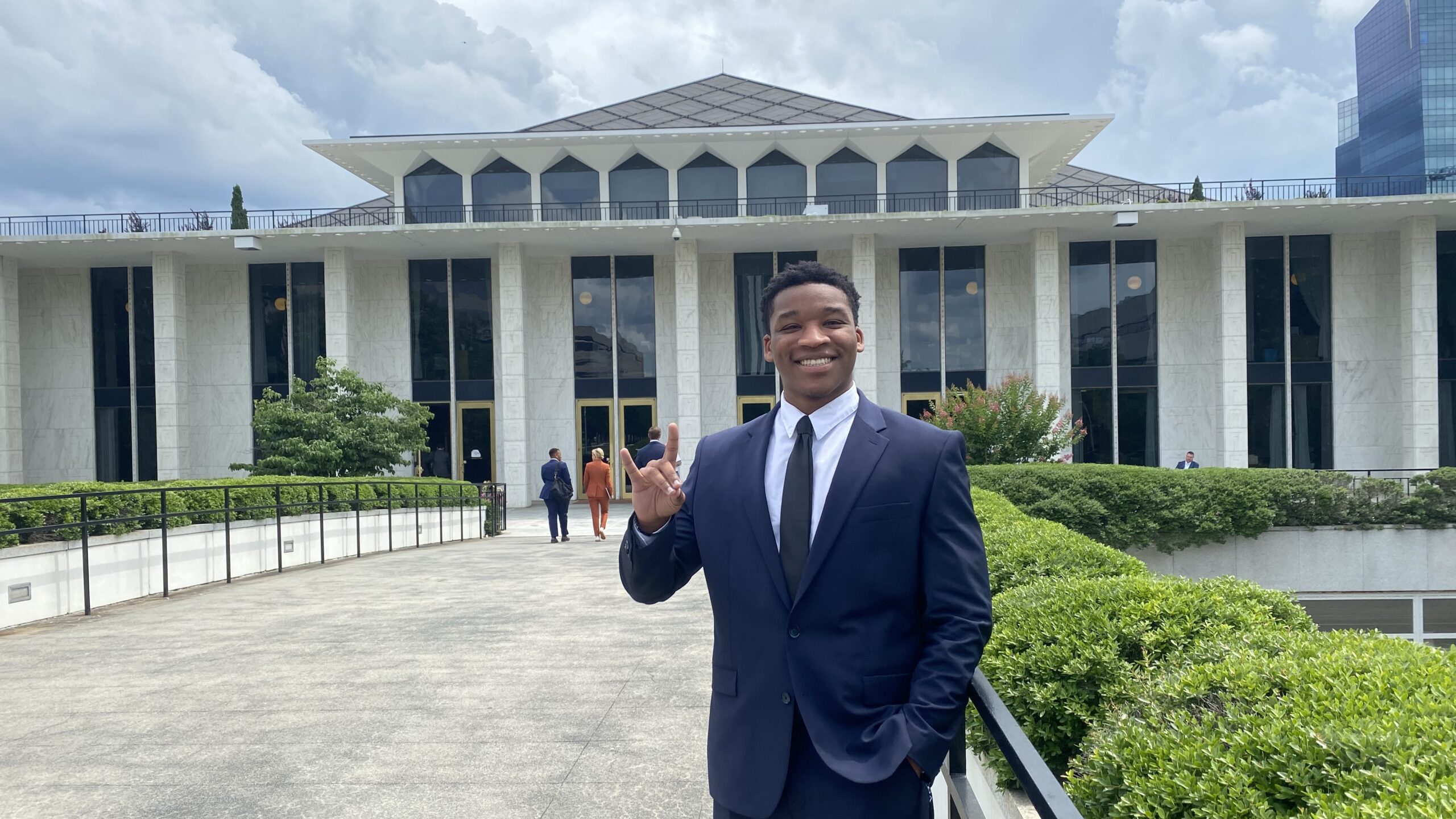Highlights from Midterm Elections Discussion
 The day after the Midterm Elections, two esteemed Political Science professors, Dr. Steven Greene and Dr. Andrew Taylor, debated the outcomes of the election. They started with a discussion about voting patterns. Dr. Greene highlighted the gender and education divide that was present within different demographic subsets, whereas Dr. Taylor focused on the shift in voting patterns of college-educated white people and the role of the rural/urban divide among voters. After opening statements summarizing the results, both professors debated in detail the following topics of the Midterm Elections:
The day after the Midterm Elections, two esteemed Political Science professors, Dr. Steven Greene and Dr. Andrew Taylor, debated the outcomes of the election. They started with a discussion about voting patterns. Dr. Greene highlighted the gender and education divide that was present within different demographic subsets, whereas Dr. Taylor focused on the shift in voting patterns of college-educated white people and the role of the rural/urban divide among voters. After opening statements summarizing the results, both professors debated in detail the following topics of the Midterm Elections:
The Campaigns and Voter Attitudes
Dr. Greene and Dr. Taylor provided insights into the campaign strategies used by members of both parties, agreeing that candidates campaigned using fear tactics to earn votes. Dr. Greene suggested that Republicans focused their campaigns on immigration to generate fears in an attempt cast Democrats as a party weak on immigration. Greene believed that tactic likely hurt Republicans because they should have instead focused on the positive message of the economy. Taylor believed that Democrats focused on issues related to healthcare in an effort to suggest Republicans may try to take it away.
Voter attitudes were also important factors in the 2018 Midterm Elections according to both Dr. Greene and Dr. Taylor. Dr. Greene highlighted the increase in youth voter turnout, which was 10% higher when compared to 2016 vote totals. Dr. Taylor focused on the increase in Democratic votes, both nationally and in North Carolina, particularly among suburban and college-educated white voters. However, Greene believed polling “overestimated the Democrats chances in the Senate”, even though polling was fairly accurate in representing voters’ attitudes.
The Role of Gerrymandering
When the role of gerrymandering was discussed, Dr. Greene and Dr. Taylor disagreed on the extent to which gerrymandering played a role in this year’s election. Dr. Greene believed that gerrymandering “limited the number of seats Democrats were able to pick up.” In contrast, Dr. Taylor questioned the idea of gerrymandering affecting the results because both parties were “highly competitive in all regions, not just in certain regions.”
Midterm Results and The House of Representatives’ future
The 2018 Midterm Election greatly impacted the House of Representatives because it shifted the control of power from Republicans to Democrats. Greene believes there will not be many pieces of legislation passed due to polarization between the two parties. However, he predicts that Democrats will have control of oversight and “there will be accountability within Congress.” Taylor on the other hand believes there are more policy areas where both parties and the president can work together to enact legislation, which includes healthcare reform and new infrastructure legislation. But the amount of legislation that may be proposed will be largely dependent on “how aggressive Democrats will be in their investigative efforts into the Trump Administration.” Both agree that there will be tensions between the House of Representatives and the other branches of government.
Midterm Results and The Senate’s future
While the House of Representatives was greatly impacted by the Midterm Elections, the Senate was only marginally affected. Both Greene and Taylor believe the slightly larger Republican lead will make it easier for President Trump’s prospective appointments. They suggested that both judicial and cabinet appointments will have a better chance of being approved even if the votes fall along party lines due to the Republican-controlled Senate. Greene said, “This is the case because there are not many Republican senators like Jeff Flake or John McCain that will oppose an appointment.”
The Effect on the President
While both professors view Trump as a possible “deal maker”, Greene and Taylor exert caution in predicting how these deals will be approached and the possibility of bipartisanship. Greene thinks that cooperation between Trump and House Democrats, is unlikely to materialize, because “Democrats do not have anything to gain by working with the president.” However, Taylor believes there is more to gain by the two working together but emphasized that “if there are multiple investigations into the Trump Administration then it could lead to a fight between the branches.” Dr. Taylor summarized the potential relationship between Trump and House Democrats best stating that “it will likely be a deal or a fight, but not both.”
What’s Next? Predictions for 2020
Dr. Greene predicts that the next two years will be very good for Democrats and will be bad for President Trump and his agenda. He optimistic observed that “there will now be real congressional oversight.” On the contrary, Dr. Taylor believes the next two years will actually be beneficial to President Trump due to the possibility of the Democrats electing Nancy Pelosi to Speaker of the House which Taylor believes would “break a promise to voters.”


